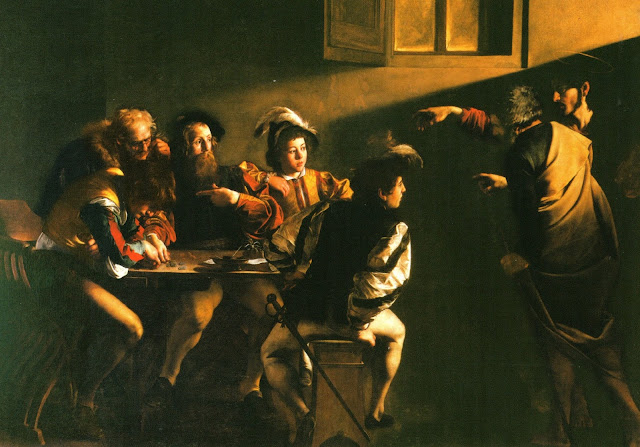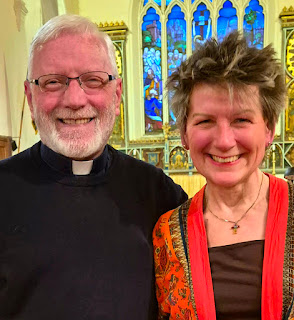HOLY WEEK: A Reflection
“My soul at once becomes recollected and I enter the state of quiet. Everything is stilled and the soul is left in a state of great quiet.” (St. Teresa of Avila)
As we enter into Holy Week we are invited by God into a state of quiet recollection in prayer as we contemplate Jesus in His Passion, as we “look upon the one they have pierced.” (Zechariah 12:10). The appropriate form of prayer is that of silent gazing, a silent gazing on the person of Jesus, a loving gaze and a total surrender to Him in which I put aside my own thoughts, my agenda and my struggles. I surrender my self-preoccupation and allow love for Him to be stirred, awakened within me in the silence.
We sometimes flinch and turn away from the silence because we cannot bear our own pain and we cannot bear the full impact of the suffering of Jesus. “He had no special beauty or form to attract us; there was nothing in his appearance to make us desire him. He was hated, despised and rejected. A man of suffering, acquainted with grief. People would not even look at him, turned their backs, hid their faces from him, averted their gaze.” (Fourth Song Of The Suffering Servant, Isaiah 52-53). But if we are to experience full blessedness of Holy Week and Easter then we should not turn away; we need to keep on gazing.
Fr. Luigi Giussani, founder of Comunione e Liberazione, speaks about spending Holy Week simply looking on the face of Christ as the way to being changed or transformed. If we spend our energy in this sacred time getting caught up in our sins or wanting to be perfect we will end up tired and unchanged at the end of it.
“Looking Christ in the face changes us. But to be changed we need to really look into his face with the desire for good, desiring truth.”
It helps to understand that when we gaze on Jesus we are gazing on the fullness of who He is. When we gaze upon the Crucified we are at the same time gazing on the Eternal Word, the Second Person of the Trinity, the Infant of the Incarnation in the stable, the Compassionate Healer and the Risen Lord – all of the expressions of who Jesus is provide us with the grace we need to continue looking at what we would rather avoid.
Something more happens in the prayer of gazing – we are drawn to Him to enter into Him as He himself has entered into us so that we experience everything as He does. “Whoever eats my flesh and drinks my blood lives in me and I live in that person.” We see as He sees, understand as He understands that in the awfulness of suffering, in abandonment, He is not alone. We are not alone. The Father who seems absent is with us in hidden form sustaining Jesus, sustaining me, sustaining you!
Entering into the experience of Jesus is an essential development in our interior spiritual life. Entering in and not staying outside.
The Pharisees missed the point of Jesus because they always remained on the outside looking in, always questioning, judging, condemning. They would not sit at the table of intimacy and mercy; they would not come to the banquet.
There are many things that keep us on the outside, including those things that kept the Pharisees outside but perhaps our greatest obstacles are guilt and fear. Guilt keeps us from coming to the table of mercy; we feel unfit, unworthy to take our place because we are ashamed. Yet, it was the worst of sinners who sat at table with Jesus in the gospel and perhaps this was made possible because they shifted their gaze from themselves to Him.
Fear of suffering – the thought that God might ask too much of us - also keeps us at a distance, the prospect of unbearable suffering puts us off, turns us away, creates a resistance in us.
Within the experience of suffering we find that, with our gaze fixed on Jesus, there is the capacity to endure in the strength that comes from Him – “I can do all things; there is nothing I cannot master in Him who strengthens me” (Philippians 4:13)
It helps to allow the Spirit of Jesus in His Passion to pray within us. In the garden of Gethsemane His distress, terror and agony give expression to ours; his darkness expresses ours; his struggle our struggle. In His abandonment on the cross he cries out our feeling of being abandoned by God – “my God, my God why have you forsaken me?” And because we are in Him and He in us, we are ultimately led to the moment of surrender to the Father which is the goal of all life and the point of all gazing, all prayer. Not my will but yours be done. Father into your hands I commend my spirit! Surrendering in trust into consummation, consolation, completion!
Eamonn Monson sac




.jpg)


.jpg)



Thank you Fr Eamonn
ReplyDelete